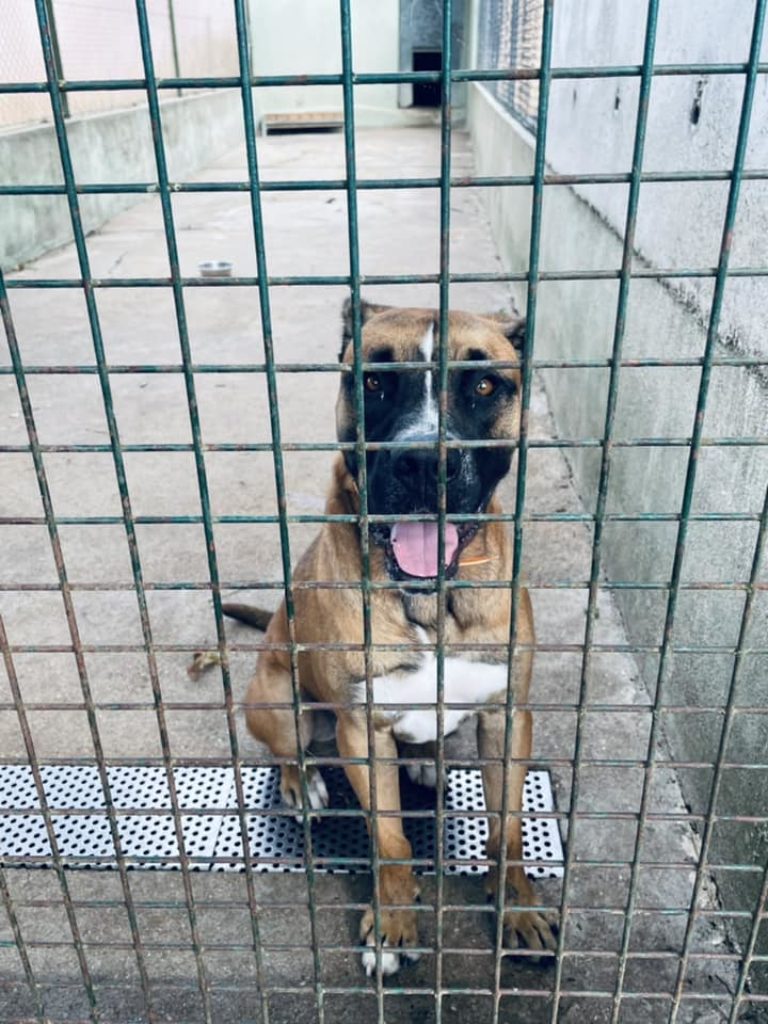Training for shelter dogs
The role of a professional behaviorist working with shelter dogs is to improve their overall wellbeing and increase their chances of successful adoption. By addressing behavioral challenges and teaching more appropriate alternatives, we aim to:
- enhance the dogs’ wellbeing
- teach dogs more suitable behaviors for a life in a family
- increase his chances of adoption
- reduce the length of his stay in the shelter
- increase the safety of staff and volunteers
This type of intervention is designed for shelter dogs showing behavioral disorders, such as fear, reactivity, excessive barking, or handling issues. Every dog is unique, and we create a personalised behavior plan based on their individual history, needs, and environment.
Our behavior plans for shelter dogs may include:
- Comprehensive environmental analysis
- Introduction of enrichment activities to reduce stress
- Teaching calmness and relaxation in high-stress shelter environments
- Replacing undesirable behaviors with appropriate alternatives
- Cooperative care training to facilitate grooming, handling, and vet visits
- Collaboration with a veterinary behaviorist if needed
We use only force-free training methods that allow the dog to make choices and preserve its emotional safety. Our approach is grounded in behavioral science and the principles of applied ethology, ensuring that all interventions are ethical and respect the individual needs of each dog.
By supporting shelter dogs in this way, we help them transition more smoothly into adoptive homes, while creating a safer, more harmonious environment for everyone involved.
To book a first appointment, please send us an email:
Rates for shelters:
Unique appointment (1h)
70.- Chf *
* 48-hours cancellation policy, according to our general conditions


Consulting & Training for shelter staff and volunteers
This work is done with the shelter’s manager and their teams. It generally begins with an audit of the facility to assess:
- The environment in which the dogs live & their level of well-being
- The level of enrichment available
- The general stress level of the dogs in the shelter
- The level of knowledge of agents & volunteers: level of training, skills in reading dog’s body language, handling, risk assessment, etc.
- General organization of the facility & organizational efficiency
- Identification of possible time savings
- General level of safety for agents & volunteers
- Adoption & return rates
On the basis of this audit, and depending on the needs of the shelter, a feasible program is set up, adapted to the specific needs of the shelter, its teams and its residents. Work is carried out face-to-face and by videoconference.
The transmission of knowledge and skills to the refuge’s staff and volunteers is essential if long-term development is to be achieved. The training of agents and volunteers can cover various aspects:
- Acquiring a good understanding of dogs, in their communication
- Recognizing signs of distress in a dog
- Understanding how to modify the environment and implement necessary enrichments to enhance the well-being of certain dogs
- Being able to assess a dog’s stress level & how to reduce it
- Knowing how to handle a dog safely and without coercion
- Continuing work on behavior protocols established for specific dogs
The program aims to make shelter staff completely autonomous so they can interact effectively with their dogs afterwards.
Rates & quotes on demand:
